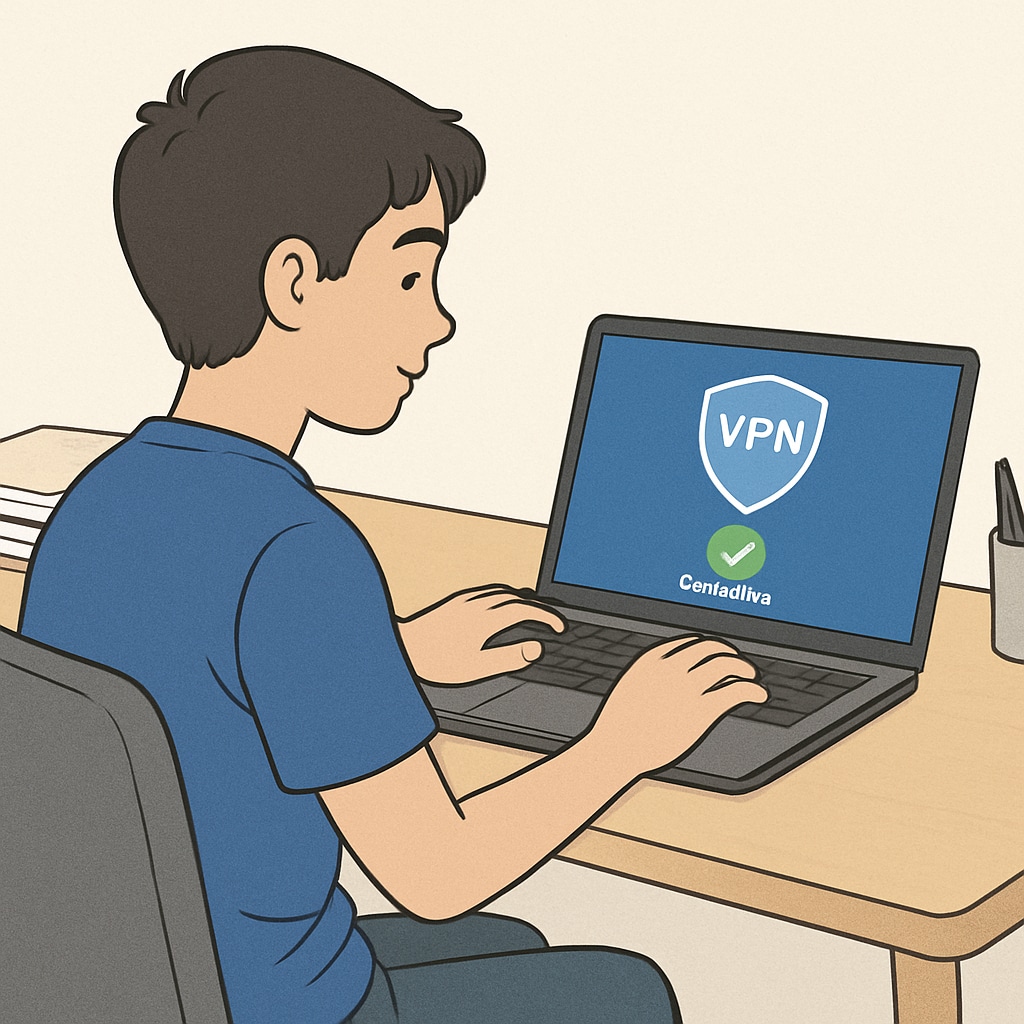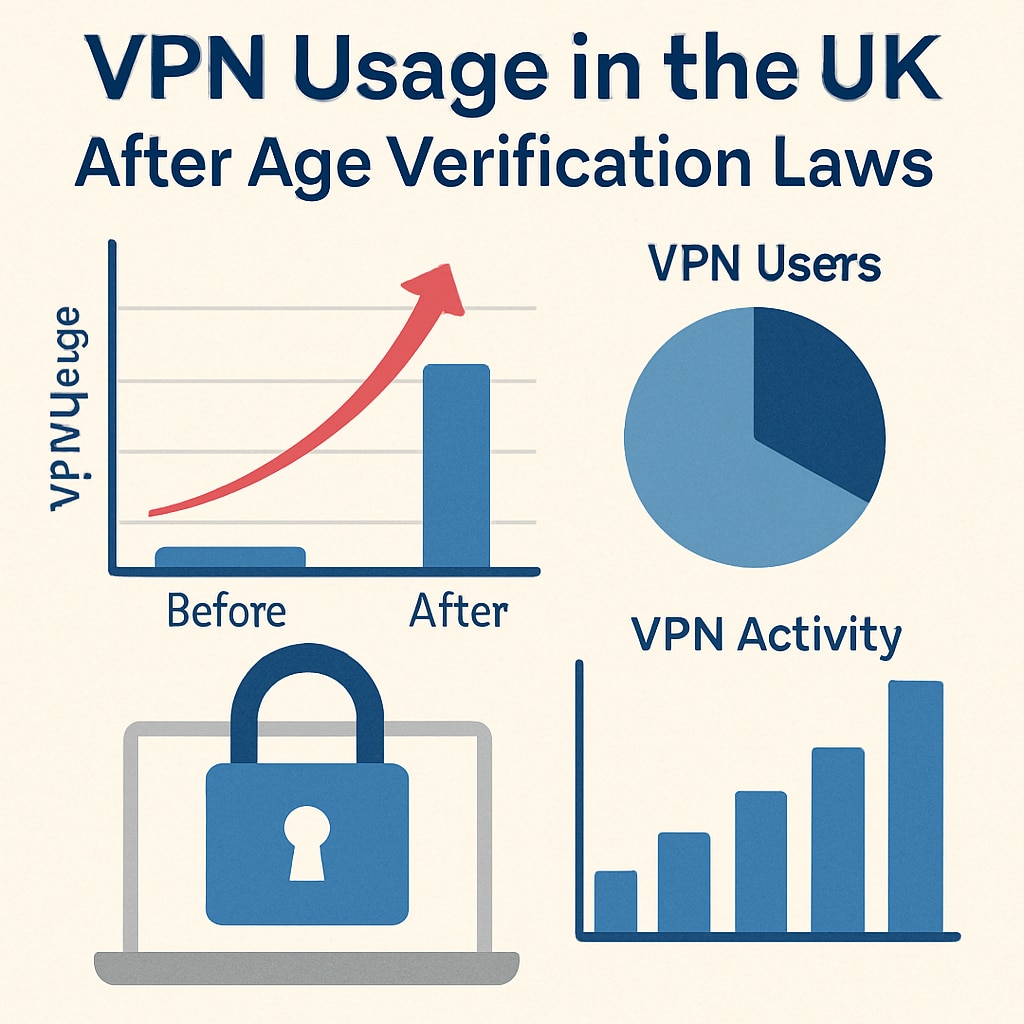The introduction of the UK’s age verification law has sparked significant debate about its implications for online safety. While the law was designed to protect minors by restricting access to adult content, it has unintentionally led to a surge in VPN (Virtual Private Network) usage. This phenomenon raises pertinent questions about the effectiveness of technical restrictions versus comprehensive digital literacy education. By examining the unintended consequences of this law, we can uncover opportunities for schools and families to foster critical thinking and self-management skills in teens, creating a more robust approach to digital citizenship.
Why VPN Use is Rising Among Teens
The implementation of the UK’s age verification law has prompted many minors to seek out VPNs as a workaround. VPNs allow users to bypass geographic and content restrictions by masking their IP addresses, effectively nullifying the restrictions imposed by the law. For teenagers, the appeal of VPNs lies not only in accessing blocked content but also in exploring an unfiltered internet experience. However, this trend exposes a critical gap: relying solely on technological solutions to regulate online behavior may inadvertently drive minors to circumvent protections.

The Limitations of Age Verification Laws
Age verification laws are a step forward in recognizing the importance of regulating online content accessible to minors. However, their efficacy is limited when implemented without complementary educational frameworks. For instance, while these laws can block access to certain websites, they cannot prevent minors from seeking alternative methods, such as VPNs, to bypass restrictions. As a result, the focus shifts from merely enforcing compliance to understanding the motivations behind such behavior.
In addition, these laws often fail to account for socioeconomic disparities. VPN services are generally affordable and readily available, making them accessible to most users. This accessibility further undermines the intended impact of age verification measures, especially among tech-savvy teens.

Addressing the Root Issue: Digital Literacy Education
Rather than relying solely on technical restrictions, a more effective approach involves equipping young people with the skills to navigate the digital landscape responsibly. Digital literacy education can help teens understand the risks associated with VPN usage, such as data privacy breaches and exposure to harmful content. By fostering critical thinking and self-awareness, educators and parents can guide teens toward making informed decisions online.
Key areas to focus on in digital literacy education include:
- Privacy Awareness: Teaching students about the importance of safeguarding personal information and understanding how VPNs operate.
- Critical Thinking: Encouraging teens to question the intent and reliability of online content.
- Ethical Use: Instilling a sense of digital responsibility by discussing the ethical implications of bypassing restrictions.
- Self-Regulation: Helping minors develop the ability to manage their online behavior without external enforcement.
The Role of Schools and Families
Schools and families play a crucial role in shaping digital behavior. Collaborative efforts between these two institutions can ensure a consistent and effective approach to digital education. For example, schools can introduce age-appropriate courses on internet safety, while parents can reinforce these lessons at home by setting clear boundaries and engaging in open discussions about online habits.
In addition, extracurricular programs and workshops can provide teens with hands-on experience in navigating digital tools responsibly. By creating environments where teens feel empowered to ask questions and seek guidance, both schools and families can foster a culture of informed internet use.
Ultimately, the goal is to shift from a reactive approach—where restrictions are imposed after problems arise—to a proactive strategy that equips minors with the skills to make safe and ethical choices online.
Conclusion: Building a Resilient Digital Generation
The UK’s age verification law has highlighted the limitations of relying solely on technology to regulate online behavior. The rise in VPN usage among teens serves as a reminder that technical barriers alone cannot replace the need for comprehensive education in digital literacy. By leveraging this challenge as an educational opportunity, schools and families can collaborate to build critical thinking, privacy awareness, and ethical decision-making skills in young people. In doing so, we can create a resilient digital generation capable of navigating the complexities of the online world responsibly.
External References:
Digital Literacy on Britannica
Readability guidance: This article uses short paragraphs, lists, and transitions to maintain clarity. Technical terms like “VPN” are explained in context, ensuring accessibility for all readers.


